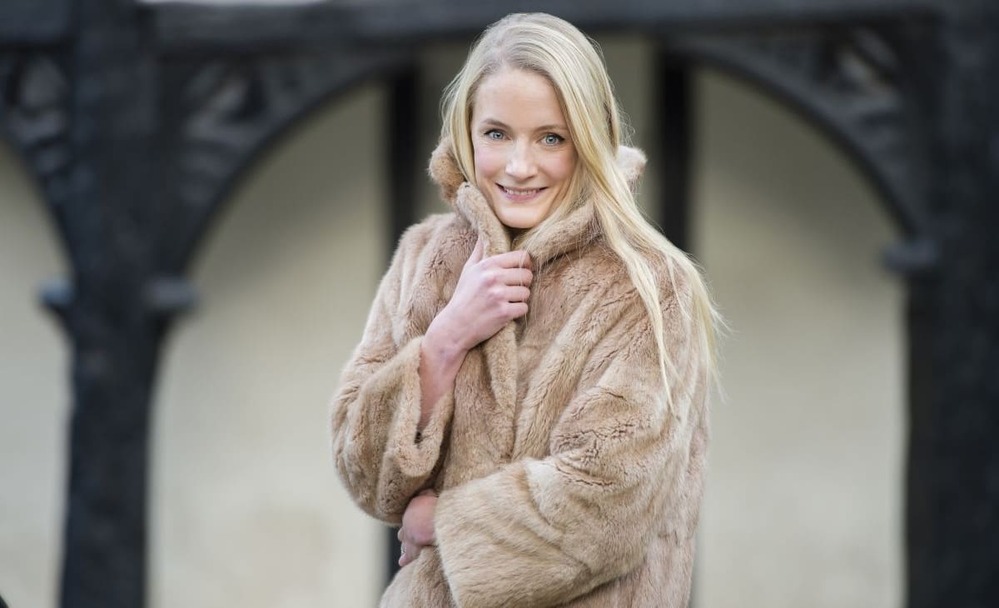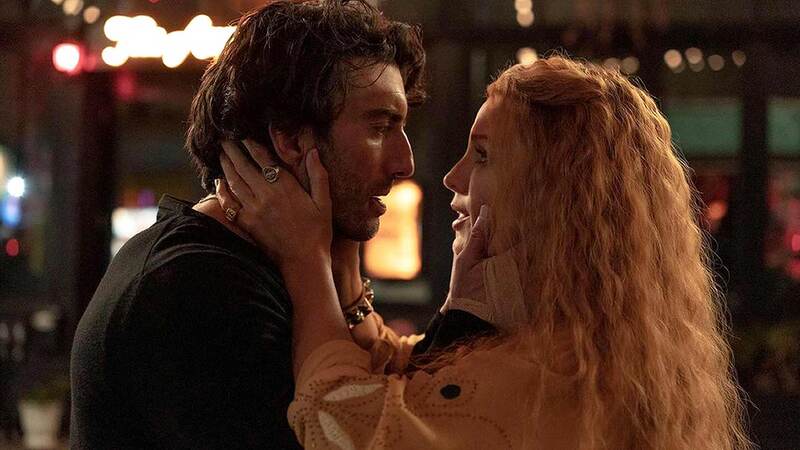You are viewing your 1 free article this month. Login to read more articles.
Lucy Foley | 'I wanted to read a modern murder mystery. So that’s what I wrote'
The Hunting Party (HarperCollins, January) follows a group of old friends who get together to celebrate New Year on a remote Scottish estate. The setting is closely based on a real country estate, near Fort William in the Western Highlands, that author Lucy Foley knows well. She had stayed there twice previously in the summertime, and was preparing to return for a mid-winter break with her husband when she received an email warning of what heavy snowfall might mean during her stay; that no one would be able to get onto the estate and no one would be able to leave. "That set my brain whirring," she says and, on a snowy walk around the estate she scribbled down the bones of the plot. "It felt so important to get it down in my notebook, before it escaped!"
In the novel, once the friends arrive they spend the following 48 hours catching up on each other’s lives, reminiscing about old times and drinking a fair bit. Many of the nine-strong group know each other from their days at Oxford University. Although their friendships were once firm, it soon becomes clear that old rivalries and "friendship-destroying" secrets lurk beneath the surface. The clock has barely struck 12 on New Year’s Eve when a broken body is found in the snow. It is definitely not an accident, but a murder among friends—who are now all trapped on the estate by the inclement weather.
Ultimately you have to write what you are interested in, and what excites you. The thing I come back to time and time again is, what as a reader do I want to read? I wanted to read a modern murder mystery. So that’s what I wrote
The Hunting Party is Foley’s first thriller, but she does have three historical novels to her name. The Book of Lost and Found, her 2015 début, was acquired for a six-figure sum by HarperCollins, and was followed by The Invitation and Last Letter from Istanbul, all three sweeping multi-generational
epics in the vein of Kate Morton and Santa Montefiore. Why the new direction? Foley, who is chatty and enthusiastic when we meet at her publisher’s office in central London, explains that she had been thinking for a while about trying something different, specifically something darker.
"My reading tastes are quite broad and I definitely come to writing as a reader, so while I love epic, historical romance and all of that, I also love Patricia Highsmith and the darker stuff." She read Highsmith’s classic guide to crime writing Plotting and Writing Suspense Fiction, "and started to think, ‘Maybe I could do this’. So it was a sort of secret side project while I was finishing my third historical novel".
Literary influences
Another significant influence on The Hunting Party was TV screenwriter Sarah Phelps’ acclaimed adaptation of Agatha Christie’s And Then There Were None. "Up to that point I’d thought of Agatha Christie as being quite cosy," Foley says, but Phelps’ approach gave her a new insight into Christie’s murder mysteries. "I do think there’s a sort of snobbery about Agatha Christie because [her novels] are so plot-heavy. People sometimes think of her characters as being cardboard cut-outs, but they are not. She understands people and might draw out one particular element of their character—almost as though they are representation for a particular sin: guilt or greed or whatever—but I think she has a frightening perception of what makes people tick."
Foley sees The Hunting Party as an update of the traditional country house murder mystery—in that the killer must be one of the people on the snowbound estate, a character already known to the reader rather than a random psychopath. Foley was drawn to the "neatness" of the murder mystery novel, noting that "with a murder mystery you have to tie up all of the threads at the end". She reckons that the "upstairs/downstairs" element of a traditional country house murder mystery set in the 1920s, say, still exists in society today: "You’ve got these wealthy London types who come up [to the Highlands] and splash the cash around, and you’ve got the locals who are working there. It felt still relevant to do something like that in that kind of set up."
But she was also keen to incorporate elements of the psychological thriller, "because I’m fascinated by the relationships between the friends and the partners". The novel also explores what the Scottish wilderness brings out in the characters, far away from their safe lives in London. As Foley puts it, "something kind of feral rises to the surface".
As a first-time thriller writer, she found the trickiest part of writing The Hunting Party was "knowing what you are revealing with one hand and keeping hidden with the other... knowing how much to reveal at any given time. There were a couple of real sticking points that I thought about for weeks, going back to them and worrying at them—like a knot—until eventually they come free and you work out how something is going to happen."
Publishing background
Before she became a full-time novelist, Foley was a fiction editor, first at Headline and then Hodder, where she worked with YA authors including Laini Taylor and Lauren Oliver. "I always loved writing, but I didn’t think it was something I could feasibly do as an actual career," she says, but her experience as an editor started to change her mind. "Seeing first drafts, there was something less intimidating about them than the glossy hardback that you pick off the shelf. It made me realise that [a novel starts as] just a Word document. It suddenly felt more doable, somehow."
She didn’t feel the need to take any creative writing courses either. "I do genuinely think that working in publishing probably was like a course in itself, because you see how rigorous those editorial meetings are." An editor would bring up a book "that might be beautifully written but didn’t have enough plot" or "didn’t fit the zeitgeist at the time", and it would be rejected. She confesses that after some editorial meetings she would feel like going home and deleting everything she’d written: "Someone would say something like, ‘Epic historical fiction is dead at the moment’, and I’d just think, ‘Oh God.’"
But editors need to be acutely attuned to the market, aware of trends and what is likely to sell. I wonder if it is useful for a novelist to be able to see their writing in that way? “When you are writing you do have to think about who your reader is, who would actually want to read it. If you are just writing for yourself in a little bubble, then that’s great, but you can’t necessarily expect to find any readers. But you don’t want to be chasing trends because that way lies only ruin and despair.
"Ultimately you have to write what you are interested in, and what excites you. The thing I come back to time and time again is, what as a reader do I want to read? I wanted to read a modern murder mystery. So that’s what I wrote."









